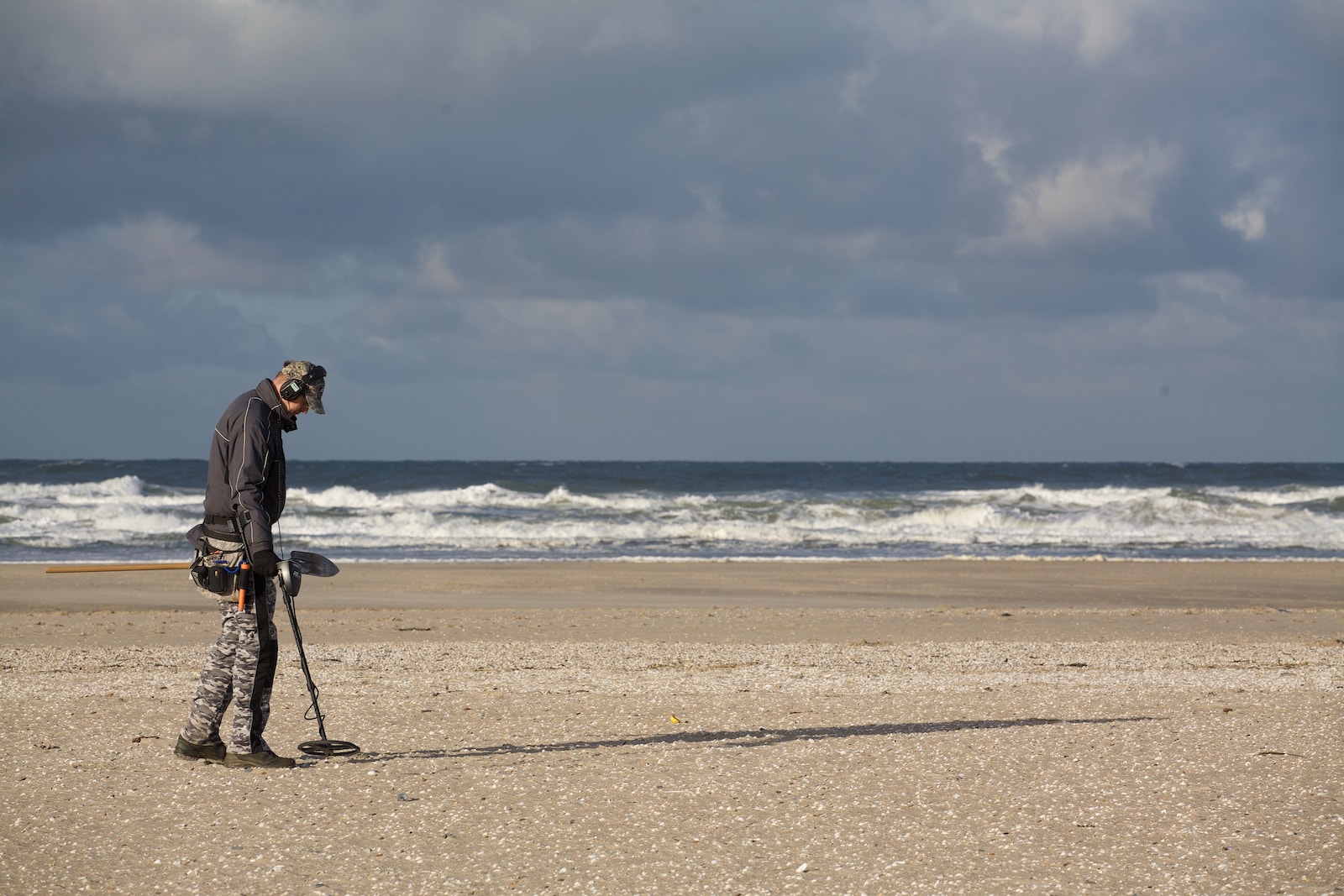Omaha Beach and other parts of France are known as great tourist attractions. The scenery and the various activities one can engage in have seen many people consider it for vacations.
Interestingly, there is a unique hobby one might spot among the visitors. It is metal detecting, and unless you know history well, it may look absurd.
Can you metal detect on Omaha beach? Before discussing the issue’s legality, what about background information about this interesting activity?
Why Do People Like Metal Detecting on Omaha Beach?
As you walk along this area along the sandy beach, the fun and tranquility leave you relaxed and calm. However, going by history, that wasn’t the case a few centuries ago.
That’s because Omaha Beach was an important location during World War II. It was part of the Normandy Invasion and one of the five areas set for landing.
Out of all the five areas, it was the second beach from the western side. Its assault occurred on 6th June 1944, and that day is popularly known as the D-Day of the Normandy Invasion.
The US units from the 1st and 29th infantry divisions landed ready for war but didn’t become victorious as they had hoped. At least not at first, since many soldiers lost their lives from drowning.
Even some soldiers who survived the natural cause of death weren’t spared by the artificial one. German troops killed them through firing and were at an advantage since they were in relatively high areas.
At some point, Germany was also attacked, registering over 1000 casualties. So, you can imagine the aftermath of this confrontation.
The exchange also left behind various metals, including guns, bullets, and ship wreckages. Some of the soldiers’ clothes and shoes were also made of metal.
Therefore, people metal detect to identify such items. Such artifacts make people witness this historical moment, which is quite intriguing to many individuals.
Is It Legal to Metal Detect on Omaha Beach?
We will look at this in two aspects. One will focus on France and beaches such as Omaha Beach.
Can You Metal Detect in France?
If you visit France, you don’t have to worry about metal detecting if it is one of your hobbies. However, the legality isn’t as clear as one may wish, and ambiguities are quite common.
The most notable law regarding metal detection legality in France is the Article L542-1 of the Code du Patrimoine. One of its requirements is seeking permission from the prefecture.
Regardless, people doing it for leisure hardly seek this permission. After all, getting it is rare, and the lucky ones find acquiring the permit daunting.
If you want to acquire the permit easily, consider collaborating with a professional archeologist. This aspect removes the legality of metal detecting in France as a hobby.
Remember to declare any finding, especially if the items are historical. Any historical item belongs to the state; hence you have no right over it despite discovering it.
If you detect metal on private land, ensure the landowner permits you. On the other hand, seek permission from the police before metal detecting on any government land.
Equally important, you shouldn’t detect metal on a designated archeological site. There is a ban on it, and that would lead to legal problems.
Since the legal requirements of metal detecting in France are unclear, always proceed cautiously. After all, better safe than sorry.
Can You Metal Detect on French Beaches?
It isn’t illegal to detect metal on a French beach. That said, it is important to know that there are beaches, such as Omaha beaches, known as designated war graves.
If you are found metal detecting in such areas, you might land in hot soup. You can avoid such a predicament by checking with the local police before indulging in metal detection.
You may not be aware of the beaches that share this dreadful characteristic with Omaha Beach. So, since better safe than sorry, ensure you talk to the local authorities before you metal detect on any French beach.
Some people visit these beaches in search of historic metal items. Under such circumstances, the law requires you to obtain a license to search legally.
On the other hand, a large group of people also detect metal to pass the time. In this case, a license is unnecessary, but you are limited to staying at least 100 meters from any listed historical site.
As long as the beach you are visiting wasn’t evaded during the world war, you can metal detect it without worry. However, be wary of wildlife reserves and private beaches because they are exceptional in this case.
It is also a requirement to declare the valuables you discover during the metal detecting exercise. So, declare these items to the local authorities when you uncover them.
The metal items don’t need to be associated with historical events for a declaration. On the contrary, you need to declare even new rings and watches.
Nevertheless, that’s a requirement that most metal detectors overlook. Ensure you aren’t one of them to avoid landing in trouble. Adherence to the rule of law has a way of making your life comfortable.
The bottom line is inquiring from the local authorities before embarking on metal detection. No rules are cutting across all French beaches, making it advisable to find out the specifics of a particular beach from the local police.
Can You Find Bullets at Omaha Beach?
Given the history of this area, that’s a possibility. So, don’t be surprised to find bullets at Omaha Beach.
However, that’s a rare occasion, especially on the beach. That’s because the government took the initiative to clean the beach after the war.
History has a record of a collection including 50 caliber bullets. It is no secret that the large bullets are associated with the united states.
Besides this association, the location could also pinpoint them to the World War. Specifically, the bullets were found on Omaha Beach at Fox Green.
Isn’t that the area where the 1st Division units, the Big Red One, fought on D-day? Whereas the assessment continues, there is a high chance that the bullets are part of history.

